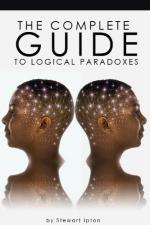|
This section contains 5,383 words (approx. 18 pages at 300 words per page) |

|
PARADOX AND RIDDLES. Although paradoxes can seem enigmatic and riddles paradoxical, they are fundamentally different realities. Riddles are mainly instrumental and performance-oriented, whether used in sacred or secular contexts, whereas paradoxes are rooted in the heart of being and language, touching on the crux of experience and expression. Riddles are to be solved; a paradox is to be transcended, or, rather, lived.
Riddles
A riddle was called griphos (lit., "fishing creel," or something intricate) or ainigma ("dark saying") in Greek and aenigma ("problem") in Latin. The modern meaning of enigma, "that which is unknown and remains obscure," reflects this ancestry. Riddles may or may not have solutions. As the English saying "It remains a riddle" indicates, what cannot be known remains a mystery. In Greek, mustērion meant something beyond the comprehension of human intelligence.
Riddles have been known since antiquity and throughout the...
|
This section contains 5,383 words (approx. 18 pages at 300 words per page) |

|


